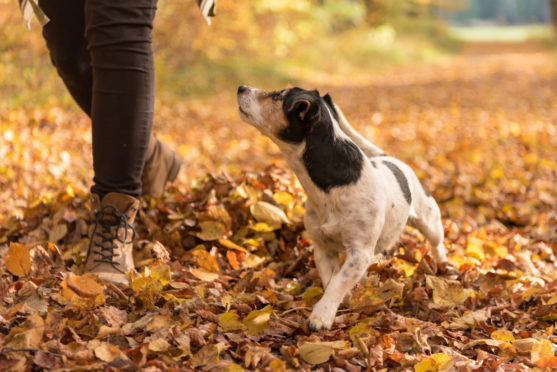
Treating pets like humans could be life-threatening as it increases the chances of medicine becoming ineffective, according to new research.
Scientists have discovered some forms of affectionate behaviour pose an antibiotic-resistance (AMR) risk to families and their domestic animals, with over-prescription of drugs contributing to the problem.
The study, led by Glasgow Caledonian University (GCU) health psychologist Adele Dickson, found close contact with pets can spread drug-resistant bugs between them and humans.
Dr Dickson, the owner of a two-year-old golden retriever, said: “This close contact could potentially put adults, children and the pets themselves at risk of transferring bugs that are resistant to antibiotics through saliva.
“I would also advise any open wounds be covered so there’s no risk of transferring anything from skin to skin.
“Pet owners shouldn’t panic because the risk of AMR transmission for most people from affectionate behaviour with pets is relatively low.”
Scientists have urged people to adopt changes that reduce the risk of building life-threatening resistance to antibiotics, including discussion of the need for antibiotics with vets and GPs.
Other steps include avoiding kissing pets on the mouth, not letting them lick the mouth and nose, washing hands after stroking animals and making sure they eat from their own bowls instead of household utensils.
Dr Dickson said: “The biggest take-home message to pet owners from this study is to think twice about whether your pet, you, your children or other family members actually need antibiotics.
“Many pet owners told us they felt a sense of guardianship and protection towards their pet when it became ill and they would specifically ask for antibiotics to reassure themselves that they were helping but it’s actually doing more harm than good if they are not necessary.”
She added: “As the owner of a two-year-old golden retriever, I know how important that affectionate relationship between the owner and their pet is to both mental and physical health and well-being.
“I’m not saying pet owners need to stop showing affection for their companion animals because we know from our research and from speaking to 23 British dog, cat and rabbit owners who shared their stories that these behaviours are so deeply treasured they are unlikely to be amenable to change.”

Enjoy the convenience of having The Sunday Post delivered as a digital ePaper straight to your smartphone, tablet or computer.
Subscribe for only £5.49 a month and enjoy all the benefits of the printed paper as a digital replica.
Subscribe